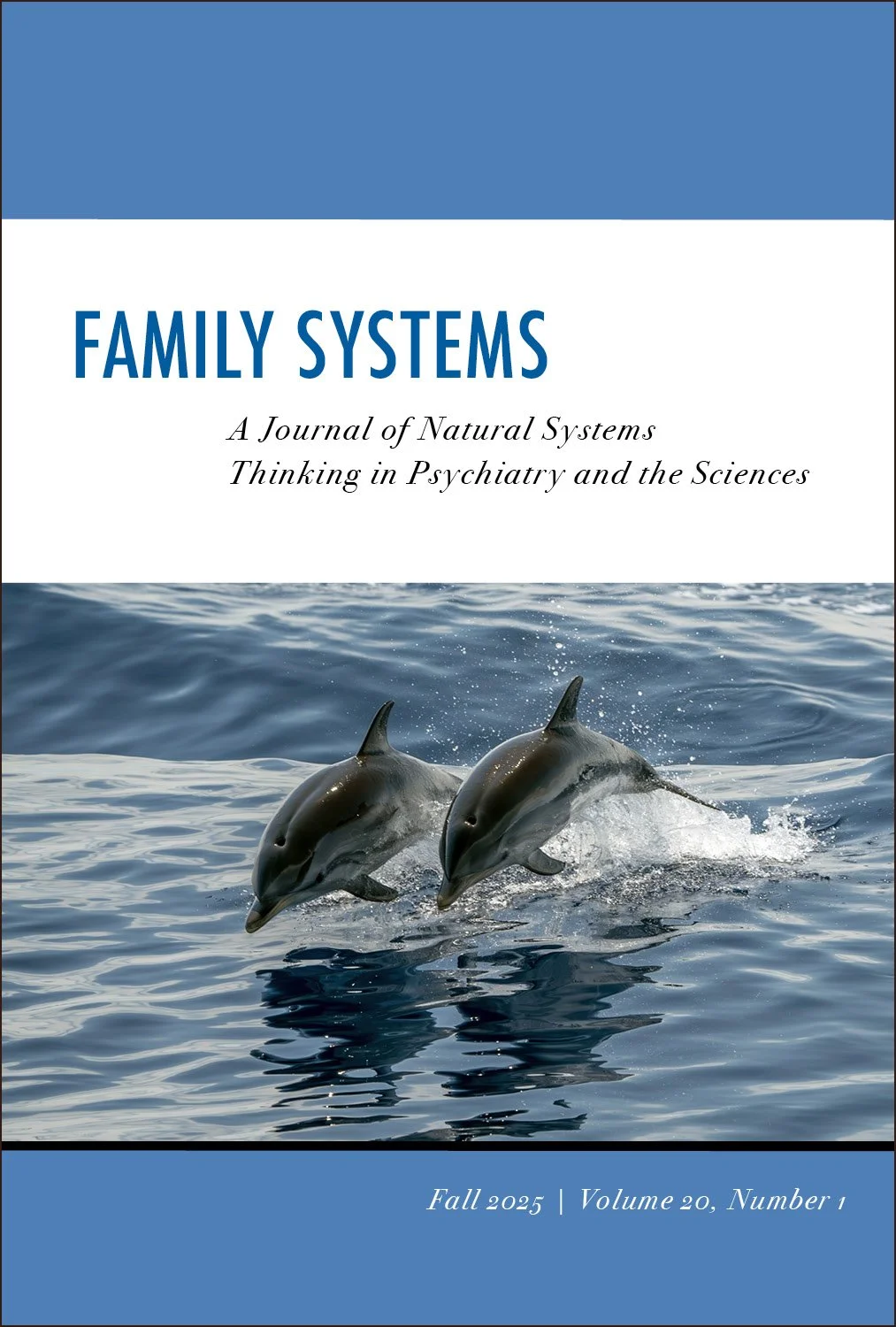Current Issue — Volume 20.1
Begin your subscription with 20.1
Volume 20.1 is now available in digital format. Print subscribers will receive their print issue by early December
Please visit our website’s main journal page to learn more about the journal and see other issues.
FROM THE EDITOR:
Robert J. Noone, PhD
ARTICLES: Journal articles reflect natural systems thinking or are relevant to it. These may include concept papers as well as research studies.
SYSTEMS BIOLOGY AND THE FAMILY EMOTIONAL SYSTEM
Robert J. Noone, PhD
The term systems biology has been referred to for decades but has emerged as a field only more recently. It can be described as applying a holistic approach as opposed to the more common reductionistic approach in biological research. Ironically, molecular biology has been a central force contributing to the emergence of a systems approach in biology. The remarkable achievement of the Human Genome Project at the end of the 20th century led to the unanticipated recognition that single strips of DNA, or genes, were not directly causal to the range of diseases or other physiological phenomena. The discoveries of epigenetic processes have demonstrated gene/environment interactions both within and over generations. Similarly, the success of molecular biology led to the observation of the amazing complexity at play in all forms and levels of life. A view entailing the interactional processes occurring among biological systems is required.
This paper has a twofold objective: 1) to briefly describe the emergence of systems biology and the development of a new paradigm related to genes and evolution; and 2) to propose that the family emotional system, as defined in Bowen theory, represents a higher level of organized complexity both in its functioning and in its evolutionary context.
Key words: systems biology, family systems, Bowen theory, cooperative breeding, brain evolution.
CHILD FUNCTIONING AND THE FAMILY: BETWEEN FAMILY VARIATION
Phillip Klever, LCSW, LMFT
This article presents a fifteen-year quantitative study of the associations between family systems variables and overall child functioning in a sibling group. Bowen family systems theory provided the framework for the research hypotheses and questions. The study found the annual degree of child symptomology in the family units over fifteen years correlated with the following variables: multigenerational stress, marital and adult symptomology, lack of participant self-direction, emotional cutoff, primary triangle reactivity, and child symptomology in the multigenerational family. These associations supported the family systems’ hypotheses in Bowen theory related to child functioning. This article expands on the companion article, “Child Focus and the Family Unit: A Comparison of Families with Higher and Lower Child Symptomology” by examining contextual family factors that associated with child functioning.
Key Words: Child focus, tension, triangle, child symptomology, emotional fusion
FACULTY CASE CONFERENCE: Presentation of a faculty clinical case, followed by a discussion with faculty members of the Bowen Center.
Presenter: Amie Post, MA, LCMFT
BOOK REVIEW: Reviews on books relevant to Bowen theory and its many applications.
Father Time: A Natural History of Men and Babies
by Sarah Blaffer Hrdy
Reviewed by Margaret Donley, MSW
